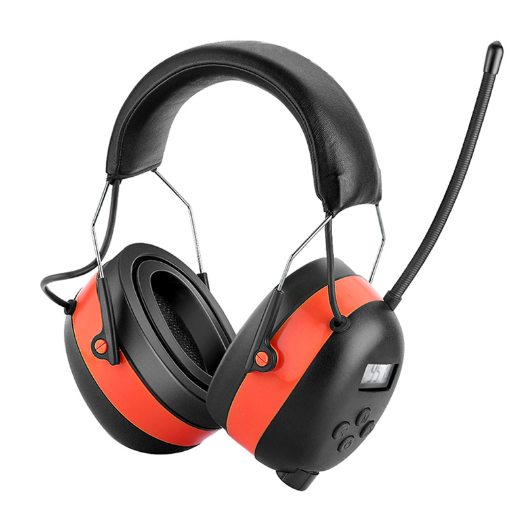Active Noise Cancelling Headphones: Are They Good Enough for Hearing Protection?
Active Noise Cancelling (ANC) headphones have become increasingly popular for their ability to reduce ambient noise and provide a more immersive audio experience. While ANC technology is primarily designed to enhance audio quality, many people wonder if ANC headphones are effective enough for hearing protection in noisy environments. In this article, we will explore the capabilities of ANC headphones for hearing protection and discuss their limitations.
Active Noise Cancelling technology works by using built-in microphones to capture external sounds and generate inverse sound waves that cancel out the incoming noise. This cancellation process occurs in real-time, effectively reducing the impact of background noise on the listener. However, it's important to note that ANC is most effective at cancelling out consistent, low-frequency sounds, such as the humming of engines or air conditioning units.
When it comes to hearing protection, Active Noise Cancelling Hearing Protection can provide some benefits should be considered:
Noise Reduction:
ANC headphones can significantly reduce low-frequency ambient noises, which can be beneficial in certain situations. They are particularly effective in environments with constant background noise, such as on airplanes or in busy offices. By reducing the overall noise level, ANC headphones can provide a more comfortable listening experience.
Limitations for High-Frequency Sounds:
ANC technology is less effective at canceling out high-frequency sounds, such as sharp noises or sudden bursts of sound. These types of sounds can still reach your ears, potentially causing discomfort or even hearing damage if they are too loud or sustained over time. ANC headphones are not a substitute for proper hearing protection in environments with high levels of noise exposure.
Fit and Seal:
The effectiveness of Active Noise Cancelling headphones depends on a proper fit and seal. A good seal is essential for blocking out external noise and allowing the ANC technology to work optimally. If the headphones do not fit properly or there are gaps between the ear cups and your ears, the noise reduction capabilities may be compromised. It is important to choose ANC headphones that provide a snug and comfortable fit.
Battery Life:
ANC headphones require power to operate the active noise-canceling feature. They are typically equipped with rechargeable batteries that provide a certain duration of ANC functionality before needing to be recharged. It is important to ensure that the headphones have sufficient battery life for your intended use, especially if you rely on ANC for hearing protection in noisy environments.
Sound Quality and Awareness:
ANC technology can affect the sound quality of the audio being played. Some users may notice a slight reduction in audio quality or changes in sound characteristics when ANC is activated. Additionally, ANC headphones can reduce awareness of external sounds, which can be a safety concern in certain situations. It is important to use ANC headphones responsibly and remain aware of your surroundings, especially when walking or engaging in activities that require situational awareness.
Noise Isolation vs. Noise Cancellation:
It is important to note that ANC headphones provide noise cancellation, which is different from noise isolation. Noise isolation refers to the physical barrier created by the headphone design, such as over-ear cups that block out external noise. Noise isolation can provide additional passive noise reduction, but it is not as effective as active noise cancellation for consistent low-frequency sounds.
Additional Hearing Protection:
In situations where hearing protection is a top priority, it is advisable to use Safety Hearing Protection in combination with other forms of hearing protection, such as earplugs or earmuffs. This multi-layered approach can provide a higher level of noise reduction and ensure better protection against loud or sudden noises.
In summary, ANC headphones can offer a level of noise reduction and may be suitable for some environments where low-frequency noise is present. However, they are not a replacement for dedicated hearing protection in situations with high levels of noise exposure or for protection against sudden loud noises. For hearing protection, it is recommended to use specialized earplugs or earmuffs that are designed and tested for noise reduction and provide a suitable Noise Reduction Rating (NRR) to protect your hearing effectively.
If you want to know more information about Active Noise Cancelling Hearing Protection, please contact us. We will provide professional answers.
- 0



